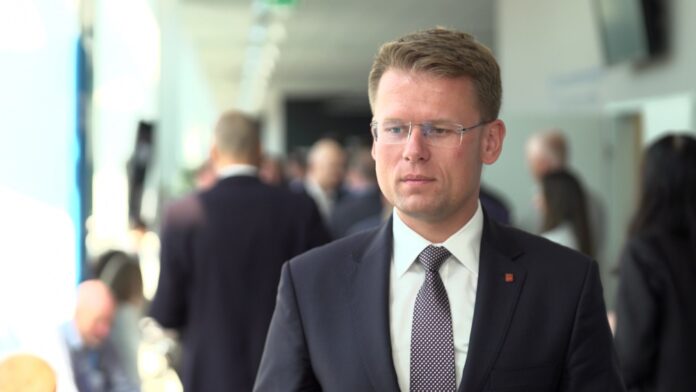Poland is the largest country in the European Union without a national bicycle strategy. Around 20 countries in Europe have such a document, while another nine are in the process of developing one. This strategy is crucial in order to gather the EU funds necessary for the development of cycling infrastructure and projects. However, there is a chance that such a document will soon be created in Poland as well. During the New Mobility Congress held in Lodz, representatives of local governments, bicycle industry companies, NGOs and the ministry signed a charter supporting the creation of a National Bicycle Strategy.
“A bicycle strategy in Poland is necessary. If we want to know where we are headed, we need to outline our goals, and this document is meant to set these goals, as well as the standards and indicators. Before we start developing the strategy, we need to assess our current state. This is a massive research task that will form the foundation for preparing a national strategy in the field of bicycles”, says Adam Wieczorek, the Deputy Mayor of Lodz, in an interview with the Newseria Biznes agency.
The first National Bicycle Strategy in Europe were established back in the 90s of the previous century. At present, a vast majority of Western Europe has such a document, with another nine countries working on it. Poland, along with countries like Belarus, Lithuania, Estonia, and Moldova, is among the few countries that have not prepared such a strategy, nor are working on it. Meanwhile, without a strategy, we risk losing the opportunity to gain EU funds for the development of cycle infrastructure and various developmental programs.
“It would provide us, the government, with some guidelines on where we should be headed, what our goals are and which elements have yet to be recognized by us, so that we can supplement them. As a result, the local governments will be compatible with each other and will jointly implement a top-down document approved at the national level, having been consulted with Polish citizens, NGOs, and businesses, which also provide services for us in the form of infrastructure or bicycles”, explains Adam Wieczorek.
Bicycles gained popularity mainly during the pandemic, and according to GUS data from 2021, 69% of Poles ride bicycles. Therefore, some local governments are not waiting for a national strategy and are independently building infrastructure and preparing local programs. However, there is a lack of cooperation between local governments and a long-term concept for the needed infrastructure.
The charter of support for the creation of a National Bike Strategy signed at the New Mobility Congress in Lodz by representatives of the ministry, local governments, bicycle industry companies, and NGOs is the first step in that direction. As part of the strategy, it is planned to, among other things, evaluate existing infrastructure and its modernization, conducting user needs analysis, or integrating bikes with public transport.
“We should determine to what level we want to develop the cycling infrastructure and what percentage of society should use bicycles. It’s not about an empty entry in the document, a set of actions must be specified that will be implemented as part of the strategy in order to achieve these goals. The two basic elements we want to achieve are improving society’s health resulting from active movement, i.e., using bicycles not only recreationally but also as a means of transport”, points out the Deputy Mayor of Lodz.
Bicycles can be a zero-emission alternative to conventional urban transportation. However, to encourage its use not only for recreation but also as a daily means of transport, its integration with public transportation is needed.
“We could mention multimodal stops which incorporate different types of communication, such as tram or bus, as well as stands for bikes, so that cyclists can transfer to another means of transport. This works in harmony with parking lots where cars can be left, and at the same time, there are city bike rentals available, so you can easily switch from your personal means of transport to single-track city transport”, Adam Wieczorek enumerates.
In other European countries, national strategies include various incentives to switch to biking. For instance, in Italy, cities subsidize the purchase of bicycles and people who ride them to work can count on a subsidy for each kilometer traveled. In Germany, a subsidy for the purchase of cargo bikes has been in place for several years.
In Poland, cities alone are trying to implement similar incentives (like in Gdynia), but on a much smaller scale. The main problem is the lack of developed infrastructure. This affects the whole branch of tourism, including considering EuroVelo, a network of bike trails that allow for cycling across all of Europe. In Poland, only the EV 10 route from Świnoujście to Elbląg is ready so far.
“We all need to understand that if we properly implement bicycles into our lives as a transport element, not the one existing only for recreation but the daily one, used to commute for instance, we would support our health and maintain a high quality of life. But we also would support other citizens as we would emit less pollution into the air”, emphasizes the Deputy Mayor of Lodz.


















